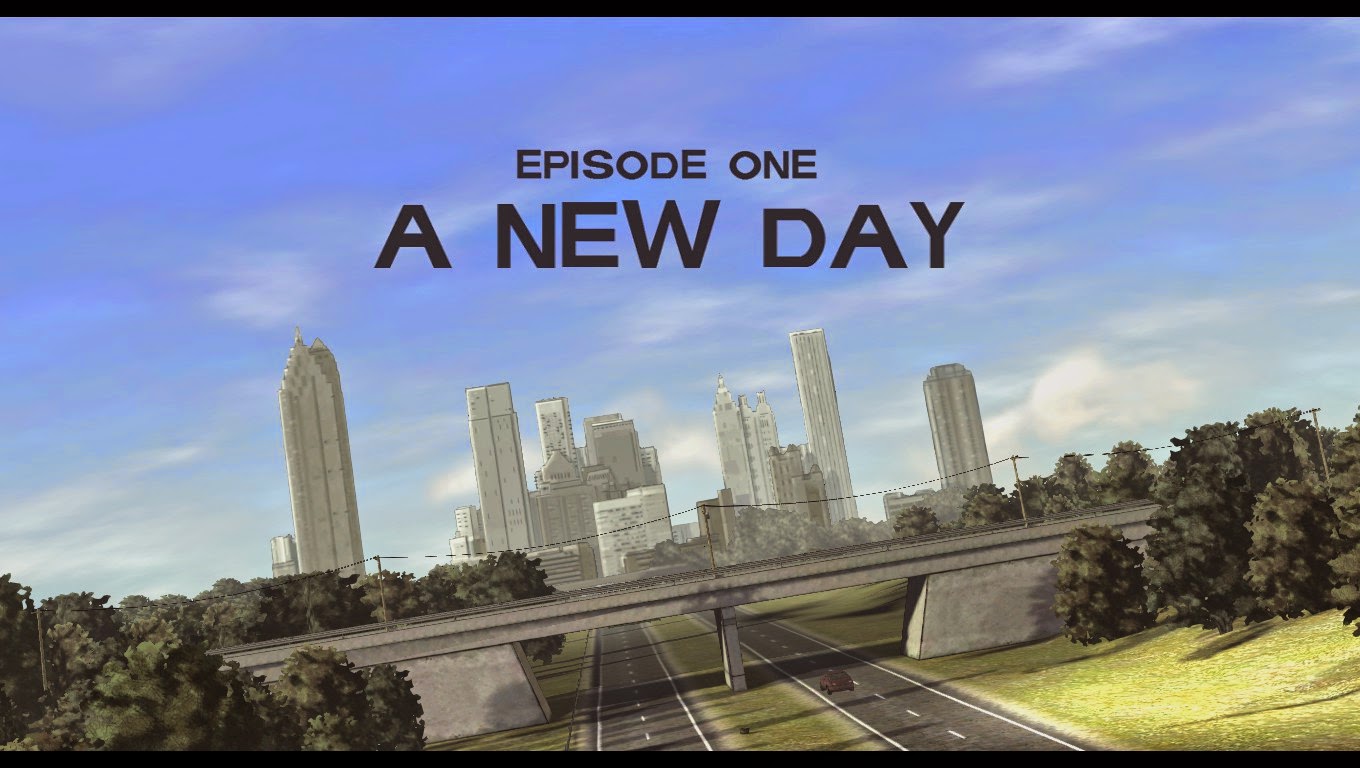Let me first say that I love The Walking Dead franchise (comic, TV show and now video game) and the game is a great accompaniment to both the comic as well as the TV show. While I have noticed some crossover with at least one character from the TV show and comic, I really hope that at some point a character from the game makes it into either the show or the comic. I am now going to move away from gushing about how great this game is and how well the voice acting and art is, and instead talk about one of the main story telling aspects in the game. The act of choosing how the story unfolds and your choices in that story.
The Walking Dead warns you upfront that the seemingly random and meaningless choices you make will affect the other characters in the story as well as the outcome of the game. From what I could tell, the large story points are going to happen no matter what your choice is, but it is how the other characters react to your earlier choices is what I am trying to get across.
In the game you play as native Georgian by the name of Lee who is charged with taking care of another survivor named Clementine. Throughout the entirety of the game, which is comprised of five episodes told in roughly two hour increments, you play as Lee, making his decisions and sometimes influencing the choices and opinions of others. I was thankful that I was never asked to play as Clementine as I do not feel that my reactions to these situations would be accurate compared to that of an semi-orphaned eight year old girl during a zombie apocalypse. Often times, text will pop up on the screen following a response you made that says "Clementine will remember that" or "Kenny will remember your loyalty."
It is these situations that make you start to really question your responses. Add on top of that that most of your responses have to be made within a certain amount of time (decided by a varying speed decreasing timer-bar at the bottom of the screen). There was a short time while playing that unless I saw that my response had some kind of impact on the other characters, I would be disappointed or felt that the situation did not really matter as to what my stance/response was. I had become spoiled by the very game while I was playing that game. These important choices are later shown to you at the end of the chapter and compare your choices to everyone else who has played the game.
This is where I feel the game gets interesting. I first heard about this aspect of the game from Gus Sorola on one of the Patch Podcasts (although I do not recall which specific episode) where he said that he likes finding out when his choices were not in the majority with what everyone else chose. While I too am excited to find out that a choice I made was only made by 6% of other players, I am not going to tailor my playthrough with only this thought in mind. Some choices I can guess what most other people have chosen, but pretty early on I was able to establish the kind of person I wanted to play Lee as being. I would like to think that I was able to maintain his integrity throughout the entire game.
There were two instances that I reloaded the game because the response I gave was not how I thought Lee was going to deliver the line. In one instance, I yelled at Clementine to do something when I read the response as a calm suggestion. This was only one of two times that I doubled back from a choice that I made. The second time was when I thought I was backing up one character with a particular response, but ended up supporting someone else, so I reloaded.
What I have found to be great about this game is watching someone else play through, which is what I did with Conklederp after I had started playing. However, what I quickly realized was that we made a lot of the same decisions, including the important story choices that showed up at the end of the chapter. Out of the 26 possible choices that the game tallied, Conklederp and I differed in only seven instances. 70% similarity is fairly significant, at least I think so.
I would eventually like to share what my choices were, but that might have to be saved for a later time as everything would end up being a spoiler. If you know about a key event coming up, that knowledge might lessen the emotional impact of having to make a decision within only a few seconds. It could be the difference between saving one person instead of another or deciding who to trust and who could be detrimental to the survival of the group. That will be a spoiler heavy post.
The Walking Dead contains three separate save files so I think I may decide to go through the game and make all the opposite choices that I made the first time through just to see how much the story differs, but I do not think that my emotional stamina is up for it at this point. Maybe after I finish The Walking Dead: Season Two, which I just started a few days ago.
I now leave you to have a wonderful weekend with a scene from happier, simpler times.
~JWfW/JDub/Jaconian





No comments:
Post a Comment